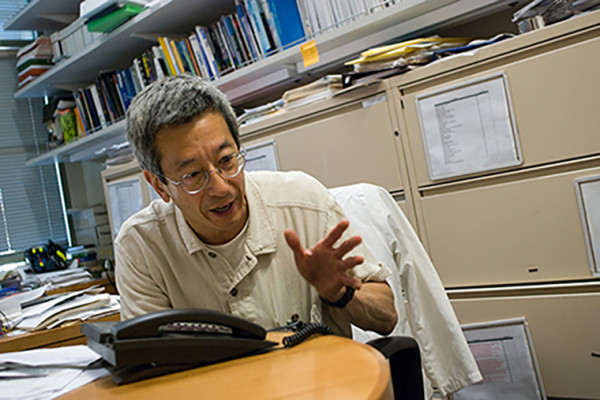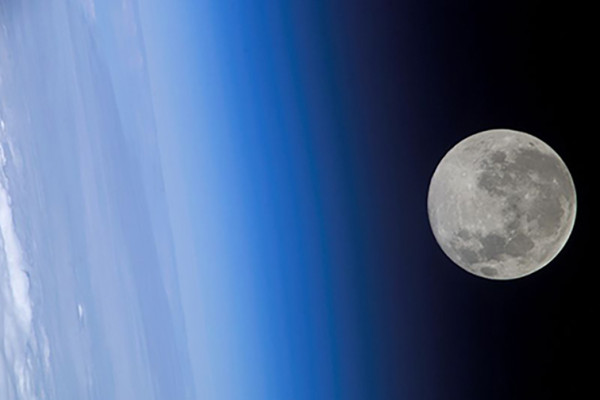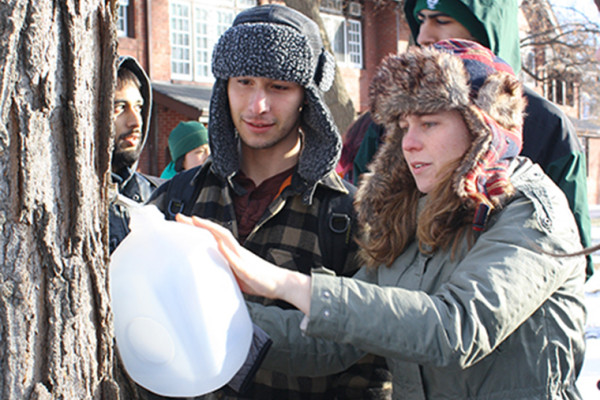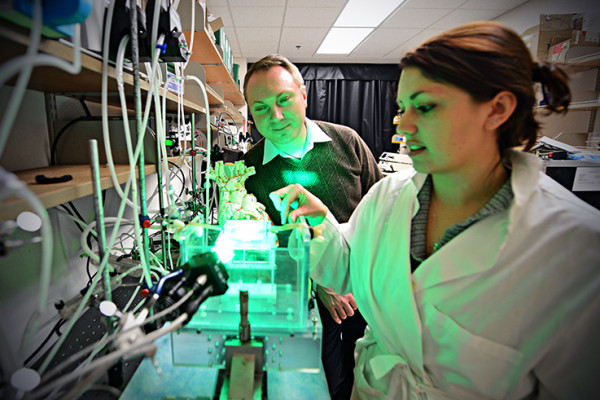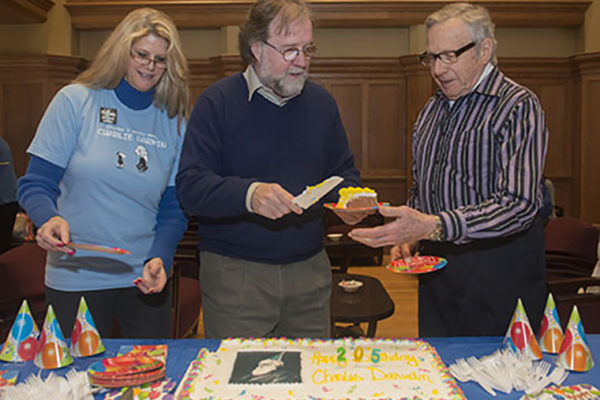2014 Leopold Marcus lecture by Nobel laureate
Roger Tsien, one of three chemists who won the Nobel Prize in Chemistry
in 2008 for the discovery and development of green fluorescent protein, will give the Leopold Marcus lecture at Washington University in
St. Louis. His talk, “Fluorescent Molecules for Fun and Profit,” is intended for a general audience and will take place at 4 p.m. Wednesday, March 12, in the Laboratory Sciences Building, Room 300. The talk is free and open to the public.
Earth and moon’s origins are topic of 2014 McDonnell Distinguished Lecture
The McDonnell Distinguished Lecture this year will describe current understanding of the formation of the solar system, particularly its mix of rocky planets, gas giants and icy planets. The part of the story we have not nailed down, says speaker Alex N. Halliday, PhD, of Oxford University, is the origin of Earth’s moon. The lecture, which takes place at 7 p.m. Wednesday, March 5, in Whitaker Hall, Room 100, is free and open to the public.
Maple trees on campus tapped for class — and brunch
Washington University in St. Louis students joined Bon Appétit staff in preparing maple syrup and other locally collected foods for brunch this month at Ibby’s Bistro, all for their class with biology senior lecturer Stan Braude, PhD. The students tapped Danforth Campus maple trees and collected berries on the South 40 and acorns in nearby Forest Park.
3-D printer creates transformative device for heart treatment
Using an inexpensive 3-D printer, biomedical engineers, including Igor Efimov, PhD (left), the Lucy & Stanley Lopata Distinguished Professor of Biomedical Engineering have developed a custom-fitted, implantable device with embedded sensors that could transform treatment and prediction of cardiac disorders.
Frey wins teaching award
Regina (Gina) F. Frey, PhD, the Florence Moog Professor of STEM Education, has been honored with with an Excellence in Teaching Award from Emerson Electric Co.
CANCELED: Nobel laureate neuroscientist Eric Kandel explores art and the mind/brain for the Assembly Series
What happens in your brain when you look at this Klimt painting? A lot more than you might ever guess, according to Nobel laureate neuroscientist Eric Kandel, who will explore the connection between art and the mind/brain in his talk, “The Age of Insight: The Quest to Understand the Unconscious in Art, Mind and Brain from Vienna 1900 to the Present” for the Assembly Series at 5 p.m. Monday, March 3, in Graham Chapel.
Patti wins Sloan Research Fellowship
The Alfred P. Sloan Foundation announced Feb. 17 that
Washington University in St. Louis’ Gary Patti has been awarded a 2014 Sloan Research Fellowship.
He is among 126 outstanding U.S. and Canadian researchers selected as
fellowship recipients this year. Awarded annually since 1955, the
fellowships are given to early-career scientists and scholars whose
achievements and potential identify them as rising stars, the next
generation of scientific leaders.
‘Evo devo’ expert returns to campus
Sean B. Carroll, PhD (left), vice president for science education at Howard Hughes Medical Institute, a WUSTL alum (AB ’79) and one of the country’s foremost experts on evolutionary developmental biology, returned to campus to help the Institute for School Partnership celebrate its annual Darwin Day event for area high school teachers. Instrumental in Carroll’s appearance was mentor and teacher David Kirk, PhD (right), professor emeritus of biology in Arts & Sciences, who called Carroll one of the most “distinguished graduates in biology the department has had.”
Students win international University Physics Competition
A WUSTL team learned last month that they had won the Gold Medal for their analysis of a problem during the international University Physics Competition, held in November. Using the principles of physics, they predicted characteristics of an animal on an extraterrestrial planet.
Putting the squeeze on rocks
WUSTL geologist Philip Skemer has built a custom-made rock-formation appartus that traps a rock sample between tungsten carbide anvils about a
quarter inch in diameter within a 100-ton hydraulic press and then twists the sample slowly from below. His target pressure is six giga-pascals, the pressure 250 kilometers down, to
the base of the tectonic plates. He will use the apparatus to determine through experiment the mechanisms that lead mantle rocks to flow, dragging the tectonic plates with them.
Older Stories
